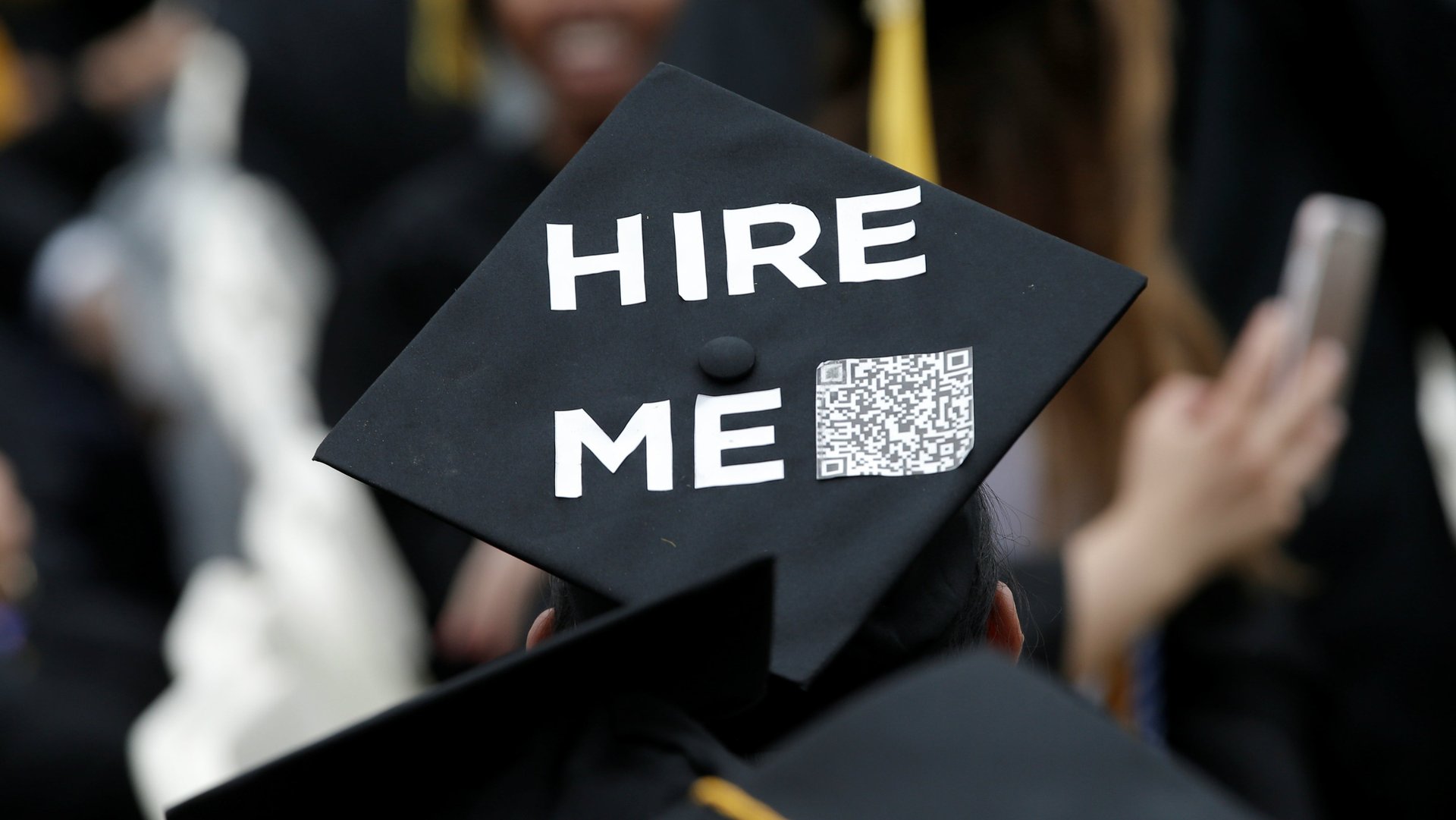The scourge of millennial job-hopping is a myth
In addition to being seen as lazy, self-entitled people and finding themselves accused of killing everything, millennials have gotten a bad rap for not staying in their jobs long enough. They puzzle employers who are trying to figure out new ways to retain them with all types of office perks, from snack bars to unlimited vacation, and alarm older colleagues who are certain that anyone who can’t stay in a job for more than two years is bound to have a rocky career.


In addition to being seen as lazy, self-entitled people and finding themselves accused of killing everything, millennials have gotten a bad rap for not staying in their jobs long enough. They puzzle employers who are trying to figure out new ways to retain them with all types of office perks, from snack bars to unlimited vacation, and alarm older colleagues who are certain that anyone who can’t stay in a job for more than two years is bound to have a rocky career.
We are here, then, to dispel two myths, really—because the numbers show that millennials on average are really not that different from past generations when it comes to job tenure, and because switching jobs, millennials themselves say, seems to be setting them up for success.
First, the data.
Decades of figures from the US Bureau of Labor Statistics show that the average job tenure for Americans in their 20s and 30s was almost the same in the 1980s as it is today. In 1983, the median years of tenure was three, versus 2.8 in 2018.
Sure, younger workers on average spend less time in their jobs than older workers do, but that makes sense. Millennials, who happen to now be the largest generation in the US workforce, are in many cases still finding their footing, while Gen-Xers and baby boomers are more likely to find themselves settled into their careers by now.
And let’s not forget, many millennials graduated into a labor market wracked by recession. They weren’t necessarily landing jobs right after graduation, and may have taken on multiple internships and entry-level gigs before landing the job they want.
But it turns out many millennials find all that job-hopping useful for their careers.
A new survey from workplace software maker Akumina found that 75% of millennial-age managers say job hopping has helped to advance their careers. The survey, which involved more than 1,000 mid- to executive-level managers primarily based in North America and between the ages of 18 and 36, found that only 10% of millennial managers felt that they were underemployed, suggesting that job-hopping has been an effective strategy for climbing the ladder.
The survey also found that millennial managers understand the importance of growing into a role, though when it comes to how long they expect to wait for a promotion, the stereotype might be close to the truth: 64% believe it’s reasonable to be qualified for a promotion after 12 to 24 months in a job.